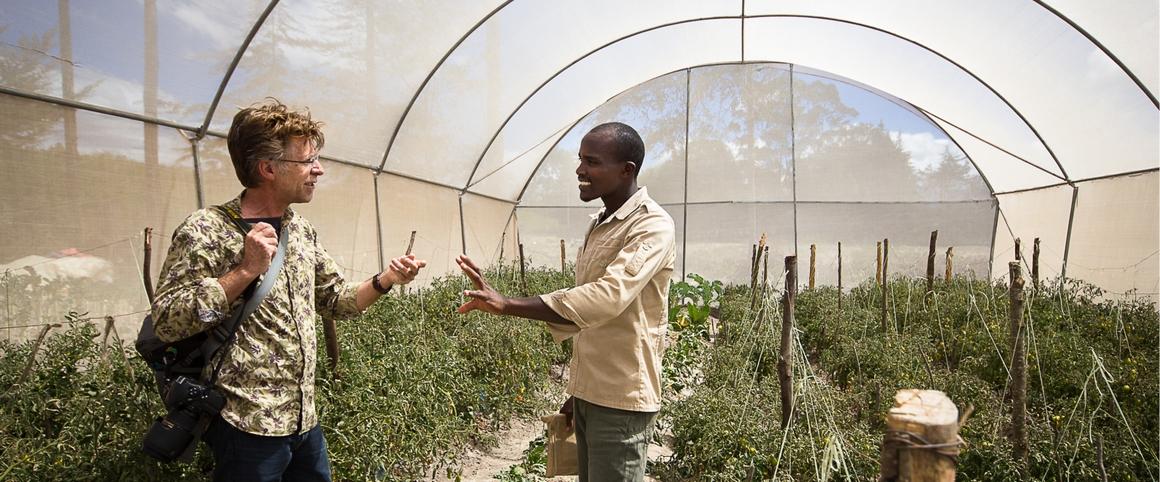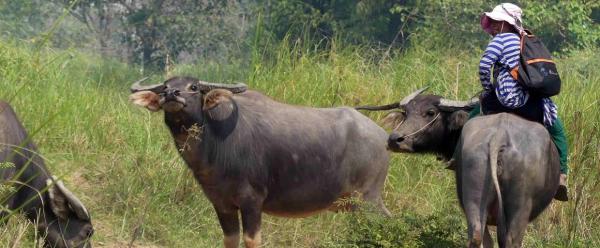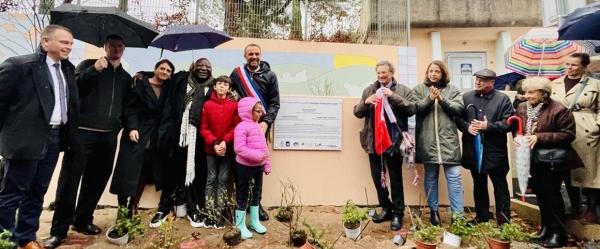- Home
- Press area
- Press releases
- CIRAD's participation in IHC 2022
International Horticultural Congress 2022: an innovation forum for almost 90 countries

Market gardening under nets in Limuru, Kenya © R. Belmin, CIRAD
The IHC is held every four years, and brings together the world's leading players in the fruit, vegetable, and ornamental, aromatic and medicinal plant sectors. More than 2200 participants are expected at this year's edition, in France. Backed by its networks in the tropics, in the French overseas regions and elsewhere, CIRAD has co-organized the international component of the congress (see all the organizers). The discussions will centre on four main topics: climate change, agroecological transitions, value chain sustainability, and health and nutritional safety.
"Horticulture is a sector at the crossroads between many health, nutrition, environmental and socioeconomic issues", says Rémi Kahane, Horticulture Value Chain Correspondent at CIRAD and Chair of the IHC2022 International Committee. "CIRAD has great expectations for this exchange of experience and innovations between North and South, in a world in which we all depend on each other in the light of a growing number of crises."
Five symposia co-organized by CIRAD
44 scientists from CIRAD will be at the congress to share their work in the French West Indies, Réunion and Africa. In particular, you can catch up with them at five symposia co-organized by CIRAD:
- Raphaël Morillon, Michel Grisoni and Nilda Paulo-de-la-Reberdière, on Conservation and sustainable use of horticultural genetic resources (S02);
- Syndhia Mathé, Paule Moustier, Laurent Parrot and Ludovic Temple, on Value adding and innovation management in the horticultural sector (S10);
- Marcel Kuper, Sylvain Perret, Akakpo Koladé and Caroline Lejars, on Water: a worldwide challenge for horticulture! (S12);
- Michel Peterschmitt and Cica Urbino, on Sustainable control of pests and diseases (S14);
- Thierry Lescot, Mathieu Coulis, Carolina Dawson, Marc Dorel, Luc de Lapeyre de Bellaire, Sylvain Depigny, Denis Loeillet, Pauline Pugeaux, Sébastien Ricci, Frédéric Salmon, Marie Sauvadet, Philippe Tixier and Lucile Toniutti on Banana organic production (S21).
There will be other contributions during business meetings and workshops.
Sheltered cropping is gaining in popularity among smallholders in the global South
Workshop 15, co-organized by CIRAD and FAO, will centre on innovations developed by fruit and vegetable smallholders in the global South, to improve water management in their plots or reduce their dependence on chemical pesticides. Those solutions include sheltered cropping and the use of insect nets.
For some fifteen years now, CIRAD has been testing market gardening under insect nets in Africa. Physically protecting vegetable crops reduces pest and disease pressure without resorting to phytosanitary treatments. Nets also limit evaporation and thus improve water management.
At the workshop, which echoes the book co-published by FAO and CIRAD in 2021 for the International Year of Fruits and Vegetables, CIRAD agronomist Thibaud Martin will be presenting experiments with protected cropping in sub-Saharan Africa. What are the opportunities for smallholders? What are the limitations? How can such practices be rolled out and adapted to different environments and to farmers' requirements?
Full programme for the workshop and expert panel here.
Some 87 countries will be represented at the 31st IHC in Angers. CIRAD, which is responsible for opening up the congress to the world, has worked to mobilize scientists from tropical and Mediterranean countries (Africa, Asia and Latin America), where most smallholders practise horticulture.
Thanks to financial support for junior researchers from the global South (student rates, grants for researchers from the global South, international thesis competition, support from CIRAD regional offices) and stronger links between the International Society for Horticultural Science (ISHS) and FAO, this edition of the congress will be fully open to horticultural experiences in the global South and promises a wealth of exchanges on global issues, which concern both North and South.



























